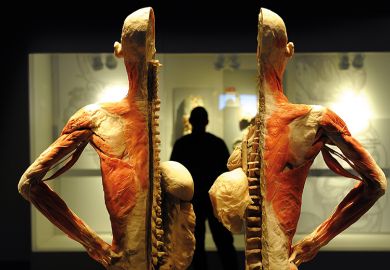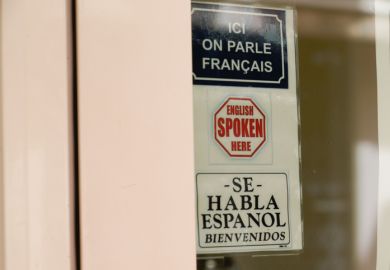Universities should embed more “professionally valuable skills” such as digital and numerical literacy into their humanities degrees to improve the employability of graduates and stem the courses’ “long-term recruitment problem” in the UK, a new report says.
The paper published by the Higher Education Policy Institute (Hepi) on 23 September also recommends that all school pupils should have to study a humanities subject in Years 12 and 13 in order to increase the number of students hoping to continue studying the area at university. Pupils should also have to continue studying mathematics and a foreign language until the end of school, the report adds.
Its author, secondary school teacher Gabriel Roberts, notes that the number of university students in the UK on humanities courses – including languages, Classics, English, history, music and philosophy – fell by 18 per cent between 2009-10 and 2019-20. Humanities courses have also struggled to recruit at A level, he adds.
Mr Roberts raises particular concern about the limited diversity of humanities recruits, with only 14 per cent of UK-domiciled humanities undergraduates in 2019-20 coming from a black or ethnic minority background, compared with 26 per cent of all first-degree students.
The paper suggests that this “long-term recruitment problem” is caused in part by perceptions that studying humanities tends not to lead to lucrative careers. A survey of students who graduated in 2017-18 conducted by the Higher Education Statistics Agency, for example, found that whereas 82 per cent of science graduates were in “high skilled” jobs 15 months after finishing their degree, for languages and historical and philosophical studies the figures were 64 and 61 per cent respectively.
Analysis of graduate tax data by the Institute for Fiscal Studies has found that some humanities graduates “would probably be earning a higher salary if they had chosen another subject to study at university” and that the effect of studying English, languages and philosophy on male graduates’ earnings was negative compared with not going to university when controlling for background and prior attainment.
While humanities students often gain valuable skills such as communication, Mr Roberts writes, they are often weaker in numerical and digital literacy – potentially key attributes sought by employers over the coming decade.
In response, he says that universities should embed “professionally valuable skills more fully in undergraduate humanities degrees. These should include digital and numerical skills.” Not only might this improve the employability of graduates, it might also help to protect government funding for the discipline, Mr Roberts argues.
Broadening A levels would be beneficial, he continues, “by preventing pupils who might study a humanities course at university from dropping humanities subjects after GCSE”. Mandating mathematics would improve the numerical abilities of humanities graduates, while requiring foreign language study “might stem the decline in applicants for modern languages courses at university and lessen the social exclusivity of Classics and modern languages courses at leading universities”.
Speaking separately, Mr Roberts said that the growing popularity of interdisciplinary degrees should “tell us something about the kind of education that many young people want. There is a strong case for change.”
Jo Fox, dean of the School of Advanced Study, University of London, said that many of the issues identified in the report “are already being actively pursued across the sector, and indeed taken much further than this report suggests, but there is clearly more to do”.
“Humanities is changing rapidly, with significant and measurable societal impact…Our challenge now is to make this impact visible to the next generation, to policymakers, and to the public more broadly so that the humanities is an informed and relevant choice for more students and academics in the future,” Professor Fox said.
Register to continue
Why register?
- Registration is free and only takes a moment
- Once registered, you can read 3 articles a month
- Sign up for our newsletter
Subscribe
Or subscribe for unlimited access to:
- Unlimited access to news, views, insights & reviews
- Digital editions
- Digital access to THE’s university and college rankings analysis
Already registered or a current subscriber?








